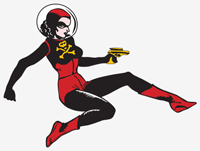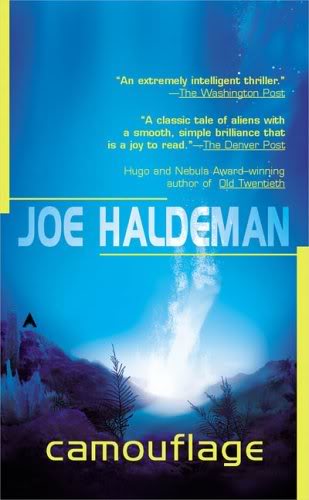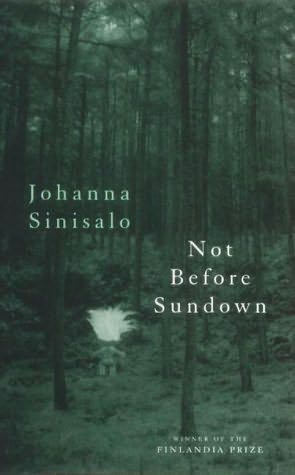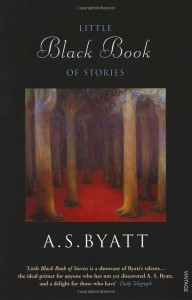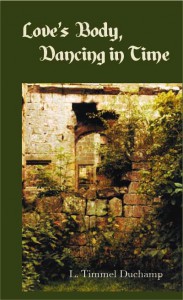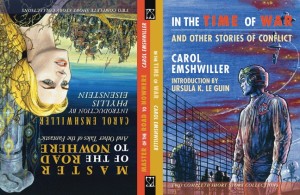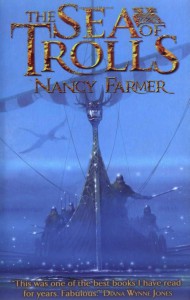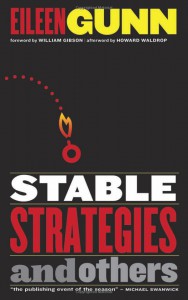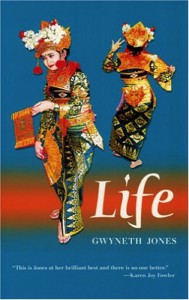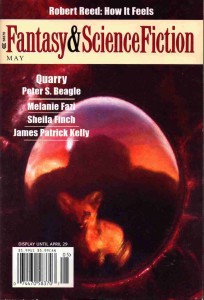The Otherwise Award is pleased to announce that the award ceremony for the 2004 Otherwise Award winner(s) has been held, and the winners have received their award and accolades.
Award Information
Conference Information
- Award Year: 2004
- Award Year Number: Year 14
- Conference: Gaylaxicon
- Date: 01-07-2005
- Location: Boston, MA
Award Winners
The 2004 jury chose 2 works for the Otherwise Award.
Haldeman is a Hemingway scholar, and it shows in the elegance of his minimalist prose in this thought-provoking book. In the best tradition of “hard” sf, Haldeman mixes scientific speculation with purely human “what if?” in wondering what would happen if a shape-shifting alien predator became, essentially, human? This book explores the human condition as thoroughly as any literary work, with understanding of gender at the crux of that understanding. For me it was one of the best science fiction books I have read in years.–Cecilia Tan An ageless, sexless entity who can take any form is at first indifferent to gender; as it grows more human, the choice becomes more important to it; it ends up a woman by preference. If gender isn’t the central concern of this novel, it’s near the center, and the handling of it is skillful, subtle, and finely unpredictable. — Ursula K. LeGuin I like the problem-solving: how do we figure problems out and how do people relate to others, how do they understand themselves and others and even figure out that some of their instinctive (or learned) sexual responses are not healthy ones.— Margaret McBride A deft novel of how human society is ruled by complex territorial relationships. In particular, Sinisalo reveals the life of the human male as closely as zoologists/biologists do chimpanzee social groups, only she does it through a quick-paced story of gay bars, advertising agencies and veterinarians. Does it matter who the king of the urban jungle is, when a real live troll cub turns up on the doorstep of a lovelorn 30-year-old photographer? Well written and affecting.–Cecilia Tan The subject is the dehumanisation of the Other – a great subject. It may be the fault of the translation, but the apparent gendering of the trolls as all male sentimentalises what might have been a more powerful story. Still, very much worth looking at. — Ursula K. LeGuin This one has grown on me, perhaps, the most out of any of the books read. The excellent world-building and intriguing use of pheromones really impressed me. The troll’s own gender issues were interesting, as a kind of unspeakable Other. — Alan DeNiro I always wondered what happened to changelings when they grew up, both the humans in Fairyland and the trolls coping with humans. This book retells troll stories, with some major twists, in the context of the current commercialization of sexuality in jean ads and picture book brides/sex slavery. — Margaret McBride The two books stand completely opposed in so many ways–you could almost say they define the opposite edges of what is conceivable for the Tiptree. Haldeman, the well-known, Hemingwayesque, male, very American, hard sf writer at one end, and Sinisalo, the European, not-well-known (in the US and within our genre, I mean), female contemporary fantasy writer at the other. Hmm, and we have the male writer creating a female protagonist (well, eventually female) and the female writer creating a male protagonist. That clicks in my head as a balance I would enjoy. — Cecilia TanCamouflage by Joe Haldeman (Ace Books, 2004)
Work Information
Title: CamouflageAuthor: Joe HaldemanPublisher:
Publisher Name: Ace BooksCountry: USYear: 2004Not Before Sundown by Johanna Sinisalo (Peter Owen Publishers, 2000)
Work Information
Title: Not Before SundownAuthor: Johanna SinisaloAlternate Titles:
Title: Ennen päivänlaskua ei voiPublisher: TammiCountry: FinlandYear: 2000Title: Troll: A Love StoryPublisher: Grove PressCountry: U.S.Year: 2004Title: Publisher:
Publisher Name: Peter Owen PublishersCountry: UKYear: 2000
Award Honor List
See full details about the 2004 Honor List
The 2004 jury chose 7 works for the Honor List None of the five stories bend gender very far — unless a woman turning bit by jeweled bit into a troll counts, which I think it might, as troll sexuality is either nonexistent or a very open question . . . But Byatt handles relationships in a way that I think is essentially tiptroid. The stories are adventurous, risk-taking (at least once to the point of falling flat on the face), nervy, savvy, genuinely imaginative, and very, very well told. — Ursula K. LeGuin Beautiful, haunting stories that thoroughly have gender issues inhabiting them. I particularly liked “The Pink Ribbon” and “The Thing in the Forest”. — Alan DeNiro All of the stories are beautifully written; the use of the fantastic in “The Pink Ribbon” & “Stone Woman” gives an original and interesting exploration of how cultural interactions affect the way we perceive gender in ourselves and others. — Margaret McBride I see most gender issues as cultural and the evocative details in “The Gift” remind me that aspects of gender, sexuality and love that I sometimes take for granted are actually societal assumptions. —Margaret McBride “The Heloise Archive” startled in how effortlessly it shapeshifts in all of its textual patterns — which are embedded in gender exploration. The narrative structure is brilliant, archetypal and clumsy at the same time. But I think it ‘s intentionally clumsy and archetypal and a brilliant attempt at trying to create a new type of story where gender transgression inhabits. — Alan DeNiro A hilarious riff on the human condition. Power plays and sexual strut. And what about hard wiring? The story could be read as a revenge story on stupid males, but I think that would miss the point of this glorious flight of fantasy. — Judith Clute Published as Young Adult, a genre we ought to keep an eye on. Tiptroid mainly in one character, a girl whom the protagonist and the reader think is a boy for quite a while, largely because she wants so much to be one and is so angry at not being one-a keen and canny portrait. Not world-shaking gender invention, but an unpretentious, slyly edgy presentation of transgendering without surgery or sf elements. — Ursula K. LeGuin The aspects of “gendered jobs” in early history are an interesting addition to this YA novel. I love the little surprise about verse at the end. —Margaret McBride Gunn doesn’t address gender as a central issue in these stories, but it’s there, in the title story, in “Nirvana High,” and others, and the take on it is marvelously dry and sly. — Ursula K. LeGuin Grunge as a curriculum in “Nirvana High” by Gunn and Leslie What — what makes this story work in a Tiptroid fashion is the hard-to-do depiction of teenagers with gifts, and using the ultra-male grunge music as a lens into this society and into how femininity is constructed. Probably the faintest “pulse” of Tiptroid materials of any of my shortlisters, but it’s there, and seamlessly embedded in the narrative. From a conversation early in the book: “Sex is in everything. I didn’t put it there. The most significant thing in your entire social and cultural life is your assigned gender. Everything else comes after that fact, including your relationship with technology.” In many different ways, this novel examines how gender affects our lives, our relationships with friends and children, our jobs, etc. The scientific discussions work as metaphors for gender and sexual issues. —Margaret McBride The main characters are moved through their paces in order to present the story of genes and chromosomes and the possibility of sexual shift in the growing embryo. Woven through that story is the woman, Ramone, who describes in heated hyperbole the contemporary fault-line of the sexual divide. Anna is obsessive: she often talks about her work to her partner Spence. In another conversation where she’s been drawing triggers of regulatory proteins, he adds his expertise: “Well whadd’ya know. This is Boolean Algebra. These are logic gates!” So when the A1 SURI (who had joked that she should have been named GAIA) was killed, it’s an emotional blow. “Yeah,” said Anna. “You can clone her. But it won’t be the same person.” The most interesting character to move through the social politics of this book is Ramone who, at one point, suggests that Anna was right: “Numbers were everything. You can regard what went on in the battle of the sexes as a chemical reaction, a fractional distillation… You could show how feminism in the classical model was doomed…” Ramone “set up camp on the border, on the actual fault-line of the Great Divide…” and lived her life accordingly. — Judith Clute Short, light, deft, elegant (and the author’s first published story); one of the few magazine stories we read that really, truly fit the Tiptree guidelines. — Ursula K. LeGuin A pleasing after-dinner mint of a story (I don’t mean that as a slur) that is very funny and does exactly what it sets out to do. — Alan DeNiro I almost always like “revisions” of a well-known tale. This whimsical version of the frog who can change into a prince with a kiss — told through the medium of “looking for a partner” ads — made me smile and stop to think about gender issues in our society. —Margaret McBrideLittle Black Book of Stories, A.S. Byatt (Chatto & Windus, UK, 2003)
Love's Body, Dancing in Time, L. Timmel Duchamp (Aqueduct Press, US, 2004)
All of Us Can Almost …, Carol Emshwiller (SciFi.com, US, 2004)
The Sea of Trolls, The Sea of Trolls Trilogy, Nancy Farmer (Atheneum Books, US, 2004)
Stable Strategies and Others, Eileen Gunn (Tachyon Publications, US, 2004)
Life, Gwyneth Jones (Aqueduct Press, US, 2004)
Kissing Frogs, Jaye Lawrence (Spilogale, Inc., US, 2004)
Award Long List
See full details about the 2004 Long List
The 2004 jury chose 17 works for the Long List
-
Only semi-tiptroid, but it’s a brilliant and charming story. — Ursula K. LeGuin
-
What if we could determine the biological gender of poets based on something measurable in their words? Even if that poet’s outwardly expressed gender differed? This story was part Shakespeare In Love part Connie Willis’ Fire Watch, and anyone who is a sucker for “writer stories” will like it, too. — Cecilia Tan
A relatively straightforward but intricate story with sound scholarship and moving characterizations. Keats is kind of a bore, but on the whole, this story strikes at the heart of how gender informs authorship, and vice versa. — Alan DeNiro
-
I love a story that goes right through exploring what it means to be male or female and ends up getting at what it means to be human. This is a stylish, action-laden science fiction story, not a navel-gazer. — Cecilia Tan
A well-plotted story in Hardboiled Mode — people smoking cigarettes even though they’re androids, and cracking wise, and driving cars in cities, all very TV-cop show. More about species than gender, but has an original twist in the emphasis on the desire/compulsion to reproduce one’s kind. — Ursula K. LeGuin
An interesting examination of sexuality and gender-how do expectations still influence “post-humans”-with film noir detective-story tropes. — Margaret McBride
- Unspeakable Vitrine, Victoria Garcia (Claw Foot Bath Dog Press, US, 2004)
To me, the story that qualifies this uneven, entertaining collection as of interest to Tiptreers is “Wally’s Porn,” which is funny and touching. — Ursula K. LeGuin
“Anthropology” is a fun look at relationships too. — Margaret McBride
-
Goto writes with vigor and energy, in a voice very much her own. “Night” and “Tales from the Breast,” are both real Tiptroid fantasies, though you mightn’t think so till right towards the end of both. — Ursula K. LeGuin
-
A gorgeous and rococo (at times) set piece of a novel — could have used more exploration of the vampiric femme fatale for Tiptree purposes. — Alan DeNiro
- Inventing Memory, Anne Harris (Tor Books, US, 2004)
A message of hope about the possibility of inventing a new world by understanding one’s own history and the history of the larger world. . . Goddesses in a science fiction context. — Margaret McBride
- Even the Stones, Marie Jakober (Edge Science Fiction and Fantasy Publishing, Canada, 2004)
No gender bending, but a serious, realistic, and grown-up novel of male-female power relationships, which is so unusual in “high fantasy” as to be practically invisible to many readers. — Ursula K. LeGuin
- River of Gods, India 2047 Book 1, Ian McDonald (Simon & Schuster, UK, 2004)
“Nutes”, a third sex, have had their sex organs removed and a sex-command centre placed in subtle ridges down “yt’s arms. The same Dream Surgeon who performed these operations also does operations for AIs, called Aeais. The plot works interestingly around the world of Nutes and Aeais and humans plugging into the Aeai’s communication lines by “lighthoeks.” — Judith Clute
In addition to looking at how women might fare in India when the male/female ratio has become skewed with so many more males than females, a whole new gender is possible, surgically brought about. — Margaret McBride
-
This is a fierce, unrepentantly experimental, somewhat raw novel about motherhood in a highly gray utopia. The societies depicted are pitch perfect and the entire narrative is filled with edginess and a great sadness as we see how families become molten in a postmodern economy. — Alan DeNiro
-
Terry Pratchett is very good at making fun of things, and in this book he makes fun of archaic gender roles through a tried and true method: by dressing up his heroine as a male and marching her off to war. Only it being Pratchett, the farce escalates as quickly as the war, and we soon discover that not only are the other soldiers in the “monstrous regiment” vampires and trolls and the like, most of them are cross-dressing too. It’s vintage Pratchett, which you will either love or hate depending on whether he is funny or tiresome to you. Now if only we could be so sure that those archaic gender roles are actually a thing of the past. — Cecilia Tan
Some nice perceptions of maleness and femaleness; genuinely funny when not merely facetious; charming and plausible when not glib and overconfident. Heterosexuality is assumed as the norm, to the point of sniggers and cute innuendoes about homosexuals. Is this 1944? That, and a certain artificiality or calculation in the central gender concern, are bad flaws in a good read. — Ursula K. LeGuin
- Romance for Augmented Trio, Tom Purdom (Dell Magazines, US, 2004)
Feels almost like a challenge story to lead to this concluding statement: “…the obsolete human and the future human had to start reconstructing the relationship they had been fashioning before the aberrant human interrupted them. — Judith Clute
-
An eerie, very disturbing piece about prostitution and mysterious time travelers. Maybe a little bit too elliptical but the characters’ dulled reactions spoke a lot to the objectification of bodies. — Alan DeNiro
- Tongkat: Een Verhalenbordeel, Peter Verhelst (Prometheus, US, 1999)
This novel is structured with colliding, disorienting stories which act like a string of chants to keep us from the base-line of the book: the awfulness of war. And there’s an exploration of gender in the stress of this urban violence: Ulrike, Prometheus’s lover and guide through the underworld, is also Tonguecat the prostitute who can tell and retell stories. — Judith Clute
- Master of None, N. Lee Wood (Aspect / Warner Books, US, 2004)
A gender-exploration tale in the classic mold: lone man on the planet of women. Wood manages to find a few patches of fresh ground here, in a branch of the sf genre that was once a staple but now is rarely explored without irony — that of the self-consciously Utopian world. If you like a dash of up-front politics in your science fiction, this book is for you. — Cecilia Tan
This novel reminds me how much our beliefs about gender are cultural-a role reversal of power from male to female with some subtle side plots and interesting minor characters.— Margaret McBride
Epic planetary gender-reversal with good world-building and empathic characters of all stripes. But the main character is straight out of central casting for Male Scientist Who Saves Planet.— Alan DeNiro
- Changing Ones: Third and Fourth Genders in Native North America, Will Roscoe (St. Martin's Griffin / Palgrave Macmillan, US, 2000)
Nonfiction that would be of interest to anybody interested in the Tiptree. It is about “berdache” — men who took/take women’s roles and women who took/take men’s roles, or as Roscoe calls it, third and fourth genders, in Native American societies and cultures, from first contact through the present. I have never read anything that gave me so many and such useful different ways to think about sex/gender. (It involves in fact a total, non-European, non-binary redefinition of gender.) It is extremely well written; the scholarship and research is as careful as it is readable. It is generous-hearted (he never sneers at anybody because they didn’t know what we know, or were benighted for one reason or another). It is tough-minded. It is a splendid book. — Ursula K. LeGuin
- Stars in my Pockets like Grains of Sand, Samuel R. Delany (Wesleyan University Press, US, 2004)
20th anniversary republication
The prologue has images that have stayed in my head since I first read it (my memory was accurate when I reread it too). The rest of the book will “play with your head” — a culture with the ability to decode your perfect sex partner down to precise details and what an amazing variety of sex and gender partners they have! “When there are so may paths and parameters along which and around which women — young, old, human, evelm, male, female, and neuter — can develop both community and communion to be passed on to others, why should you restrict yourselves to direct egg-and-sperm relations?” — Margaret McBride
Jurors
- Margaret McBride (chair)
- Judith Clute
- Anya Johanna DeNiro
- Ursula K. Le Guin
- Cecilia Tan
Award Ceremony
See full details about the 2004 Ceremony
The 2004 Otherwise Award was given to Joe Haldeman and Johanna Sinisalo at Gaylaxicon, July 01, 2005, in Boston Massachusetts.
